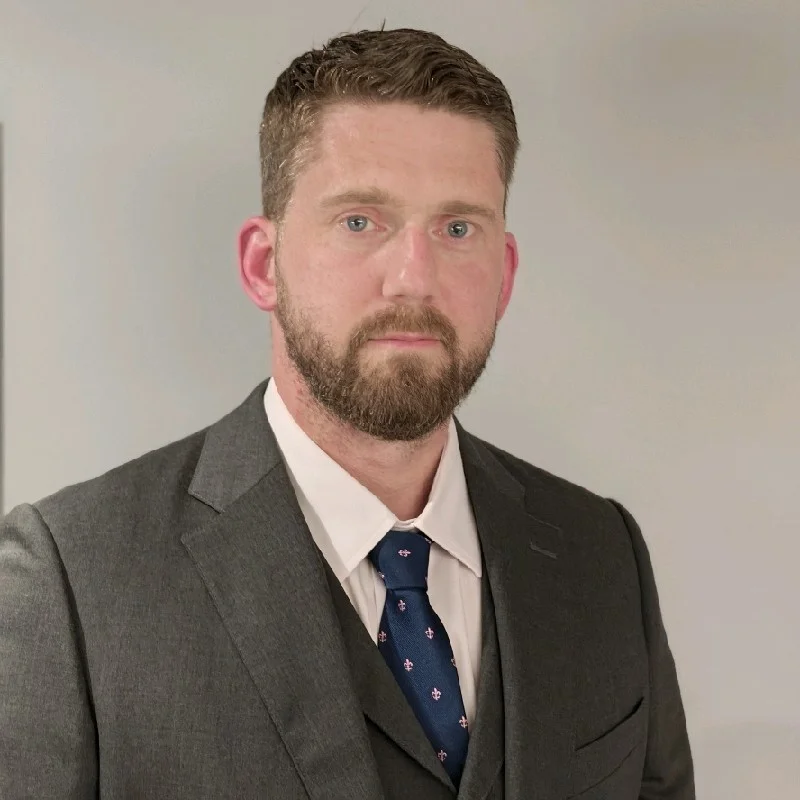
Dan Rawlings at WeWork - Episode 5 - Military Leavers
24 September, 2025From the RAF to Network Engineering: Dan Rawlings’ Route to Networking
In this episode of the Route to Networking: Military Leavers Edition, Jordan Dyer sat down with Dan Rawlings, Network Development Engineering Manager at WeWork, to explore his inspiring journey from the armed forces into the world of IT and networking.
Dan’s career story is one of resilience, determination, and adaptability. From life in the RAF to leading network projects for a global organisation, his journey sheds light on the challenges and opportunities that come with transitioning out of the military and into a technical career.
Life in the RAF
Dan joined the RAF Regiment at just 18 years old, serving as a field gunner. Over the course of four and a half years, he completed tours in Iraq, Afghanistan, and the Falklands.
Those years were formative. The military instilled discipline, focus, and resilience, qualities that became the bedrock of his later career. As Dan explained, the military changes you fundamentally: it accelerates maturity, sharpens critical thinking, and builds the tenacity to tackle difficult challenges head-on.
Facing the Transition
Leaving the forces at just 22 was daunting. Without formal technical training to lean on, Dan found himself navigating an uncertain future. While working full-time as a lorry driver, he studied his CCNA through the Open University, squeezing in learning around long shifts.
It wasn’t just about retraining. The adjustment to civilian life was equally difficult. From navigating bills and housing applications to finding new support networks, Dan described it as “starting adult life again from scratch.”
One of the biggest challenges was the lack of structured support for service leavers. Dan recalled applying for council housing, only to be told he hadn’t “served his country long enough.” Experiences like this highlight how many leavers feel abandoned at the very moment they need stability the most.
“The hardest thing is the integration and being able to stand on your own two feet again. In the military, you have that family and trust. When you leave, you don’t always have that same support.”
Dan stressed that more must be done to support military leavers - from housing access and financial guidance to workshops that teach basic budgeting and job-hunting skills. Without this, too many veterans risk falling through the cracks.
Finding a Way into Tech
With determination and some help from his father’s network in finance and IT, Dan managed to land his first role in a data centre. The position wasn’t a networking job, but it gave him essential exposure to infrastructure: pulling cables, installing hardware, and supporting engineers.
That foundation proved invaluable later on:
- It helped him understand what was happening at the other end of the CLI.
- It gave him hands-on appreciation of the physical layer of networks.
- It provided an entry point into the industry, from which he could progress.
From there, Dan steadily moved into network engineering roles, building experience with Cisco and Juniper technologies, gaining certifications, and eventually moving into leadership.
Certifications vs Experience
A big part of the conversation with Jordan focused on the balance between certifications and real-world experience, something every aspiring network engineer wrestles with.
Dan admitted that over the years, he has let some of his certifications lapse, as his career progression and track record began to speak for itself. But he’s now in the process of renewing them, recognising their value as a safety net should he need to move roles.
His perspective is clear: certifications matter, but they are not the whole picture.
“I would much rather hire someone with a CCNA or JNCIA and five years of hands-on experience than someone with two years’ experience and a CCIE. Experience speaks volumes.”
He also highlighted free or affordable learning resources, such as Juniper’s university programme, which provides structured training and discounted exams, as a great way for people, especially military leavers, to build their technical foundation without breaking the bank.
The takeaway? Certifications open doors, but experience keeps them open.
Military Skills in the Workplace
Dan attributes much of his professional success to the mindset he built in the RAF. Critical thinking, rational decision-making, and resilience under pressure are qualities he still relies on daily.
For him, tenacity is one of the strongest military traits carried into civilian work. Where others might give up on a complex task, Dan and many of his peers from the forces are wired to see it through to completion - even under pressure.
Attention to detail is another. From the strict standards of military training, Dan carried forward an appreciation for precision, accuracy, and structure — all vital in network engineering and project delivery.
Advice for Military Leavers
Dan had clear advice for others considering a move from the armed forces into IT:
- Stick with it: breaking into the industry can be hard work, but persistence pays off.
- Be prepared to start lower: you may need to take an entry-level role, but that experience adds strings to your bow.
- Leverage networks: opportunities often come from connections and being open about your ambitions.
- Never lose the military mindset: dedication, resilience, and adaptability are huge assets in the tech world.
He stressed that while the journey isn’t easy, the qualities developed in service give military leavers a real edge once they get their foot in the door.
Lessons That Last
Looking back, Dan shared that one of the most important lessons from his military experience is the ability to stay rational, even when emotions run high. In high-pressure environments, whether on deployment or in a major network outage, taking a step back to reset and think clearly can make all the difference.
As he put it, maintaining composure and clear thinking “will take you far”, advice that resonates well beyond networking.
Final Thoughts
Dan’s journey from the RAF to network management is a powerful example of how transferable military skills are to the world of IT. His story also highlights the urgent need for better support structures to help veterans transition successfully.
🎧 Listen to the full episode, including his insightful answers to the quick-fire round at the end.
🔗 Connect with Dan on LinkedIn: Dan Rawlings’ LinkedIn



